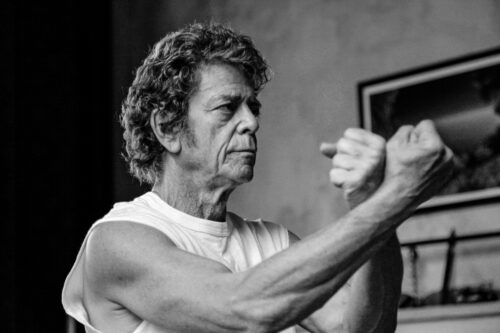PR in the PRC: Q&A with Dr. Kathy Bloomgarden


Dr. Kathy Bloomgarden is the CEO of Ruder Finn Inc., one of the world’s largest independent global public relations agencies. She has worked with an extensive list of big-name clients, including L’Oréal, LVMH, Microsoft, and Cartier.
Under Bloomgarden’s leadership, Ruder Finn opened one of the first global communications offices in China about 25 years ago and now runs four offices in the country. Since 2009, Ruder Finn has published the annual China Luxury Forecast, which conducts in-depth analysis of consumer perceptions, spending behavior, and trends in Greater China.
Bloomgarden will join the panel on luxury industry and consumer trends at our second annual The China Project Women’s Conference: How Women Are Shaping the Rising Global Power in New York. Prior to the conference, Bloomgarden shared her insights on operating a PR business in China and her takeaways from the #MeToo movement with The China Project.
The China Project: Your father co-founded Ruder Finn in 1948 when public relations was still a nascent industry. When you took over the firm, what was your vision for the company? How did you bring changes to a family business that lasted for decades?
Bloomgarden: First, I’m so proud to be leading an agency of Ruder Finn’s size that still maintains our independence from a holding company. That is one thing that has remained true from David Finn’s vision for the company to mine. Our independence, entrepreneurial spirit, and willingness to take risks and try new things are some of the characteristics that really set Ruder Finn apart. Similarly, as a leader, my vision has been to look at the trends not only in public relations and marketing, but in the world as a whole, and think about how those trends would affect Ruder Finn and the needs of our clients. In this business, we have to be a step ahead of our clients — helping them set themselves apart and stand out among heavy competition. Change is a constant, and I continue to look for new ways to be innovative. Whether it be pioneering a first-of-its-kind Alexa Skill for executive thought leadership or creating an experience-based offering for reshaping internal culture, we have to be able to marry new technologies with new approaches to the way we do business with clients.
The China Project: What are the biggest challenges facing the PR industry nowadays? How did the industry evolve in a world of digital and social media?
Bloomgarden: One of the biggest challenges that public relations agencies are facing is our own identity. There are no longer defined lines between PR, marketing, social, and advertising and, more often than not, clients want one agency that can handle all of the above. Further, campaigns often live solely online and are carried out across multiple platforms, so the challenge lies in ensuring you’re using the right platform to reach the right audience at the right time.
What’s been most revolutionary about our industry is that now, more than ever before, we are relying on data to drive decision making. Data and analytics used to be something that PR didn’t really get into — we were focused on impressions and audience reach, but never measurable impact on the bottom line. Now, with the rise of online data, we are able to better collect, analyze, and interpret data, and help our clients make more informed decisions about how and where to spend their budgets in the future.
The China Project: Under your leadership, Ruder Finn opened one of the first global communications offices in China over 25 years ago and it now has offices in Beijing and Shanghai. I know you can speak Chinese. Do you have any personal connections with China? What are some of the biggest differences between operating a PR business in China and in the U.S.? Do you have any advice for foreign companies that want to do PR campaigns in China?
Bloomgarden: Ruder Finn was one of the first major agencies to enter China when we did so in 1989 and, at the time, it seemed like a big risk. Now we are one of the top three agencies in China, and we’re continuing to grow. In fact, in addition to Beijing and Shanghai, we also have offices in Guangzhou as well as in Hong Kong.
I personally have had a passion for China most of my life. I travel there several times a year and have studied Mandarin for many years, so have really immersed myself in understanding the culture as much as possible. Interestingly, the differences between conducting PR campaigns in China and the U.S. used to be much greater. While there are certain nuances that are different (such as, in China, you could never implement a PR campaign without a WeChat strategy), I have noticed the region has become more and more sophisticated over time and, in some ways, is even ahead of the U.S. market. For example, in China, we have developed an integrated marketing approach to our communications programs, whereby we tend to work with the marketing department (versus the comms department) and utilize various aspects of PR, marketing, social, and advertising in all our campaigns, and with especially strong digital activities.
To be successful in PR in China, you have to work with people who know and deeply understand the landscape and specific audiences. Chinese consumers have become much more discretionary over recent years, and our campaigns have had to become more targeted and creative as a result. In China, our leadership really understands the local market, but is also tapped in to Western best practices. We are able to marry the best of both worlds for really stellar results.
The China Project: In an article you wrote for Project Syndicate in January, you called for a workplace revolution in the era of the #MeToo movement. Can you elaborate on what this revolution encompasses and how you think it can be achieved?
Bloomgarden: Social movements have become the catalysts for change in the current age of influential hashtags that have the ability to turn public opinion about a topic or company in a matter of days or even hours. #MeToo was profound because although it started online, it grew into something that people were talking about offline, too. I personally know many companies that started to reevaluate their internal harassment policies as a result of #MeToo, and I think there is more yet to come. #MeToo was successful because it didn’t just get people talking about an issue. People changed behaviors because of it, and companies started looking at how they could change the way they oversee and address harassment issues in the workplace. While it’s too early to tell how these changes will affect the future of sexual harassment, #MeToo is an example of why online social movements should be taken seriously and monitored by leadership, as these movements can have a direct and profound impact on the way we do business today and in the future.
The China Project: What advice would you give to any other female entrepreneurs out there?
Bloomgarden: Think differently. It is too easy to get caught up in the way things are “usually” done, or to get stuck in a monotonous cycle of work. But I have done my best work when I take the time to step back and challenge my current way of thinking. I read at least three news sources every day — and that doesn’t mean just scanning headlines; it means reading articles that let me take the time to think. I have often gotten some of my best ideas by reading about other industries outside of the clients I work with, or even from reading more feature-style articles. Sometimes the best way to think differently is to look beyond traditional sources. That means reading articles from publications you wouldn’t normally read or studying companies that are completely opposite to your own, or even just talking with people outside of the demographic you normally associate with. To think differently is to constantly challenge your own norms and to continually reinvent your traditions.
Catch Dr. Kathy Bloomgarden on Monday, May 14, at the Harvard Club of New York during the second annual The China Project Women’s Conference.





